Economy
What You Need to Know About Online Trading Scams
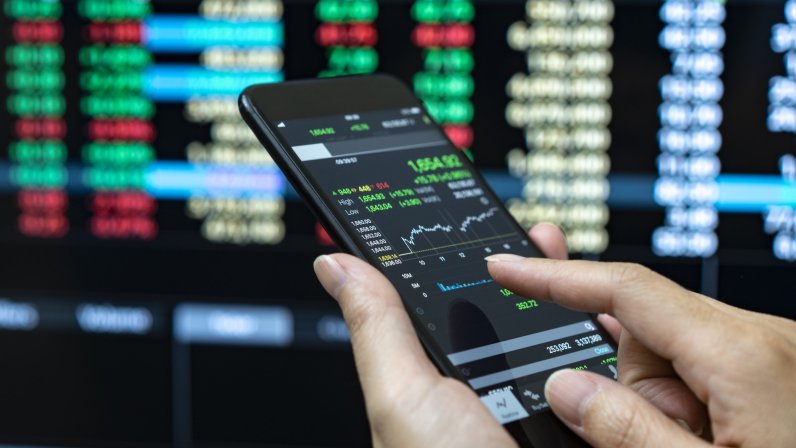
Even before the advent of the internet, traders were getting scammed. Today, these scammers reach a wider audience because of the internet and do so with more anonymity.
Nigeria is witnessing an upsurge in online payment usage, and according to CBN e-Payment Statistics, Nigerians executed about 16 billion online transactions in 2021, and it increased to 22 billion in 2022.
As more Nigerians embrace online trading and use e-payments as ways to fund their trading accounts; scammers are also perpetrating scams online which target these traders relying on the speed & anonymity of the internet; where they can pose as a fake brokerage company or an expert trader using a fake social media persona, professional looking website & email to take away money using fast & anonymous online payment methods.
Unregulated Entities and Scammers Posing as Brokers
Among the most common trading scams is the unregulated persons and entities posing as brokers. The legality of a broker is based on its regulatory status with the appropriate government authorities.
In Nigeria, the Securities and Exchange Commission (SEC) is responsible for registering and regulating capital market operators, which includes online brokers and securities and commodity exchanges.
You can confirm whether an investment provider is registered by SEC by visiting the SEC website and clicking on “Capital Market Operator Search”. Additionally, for stockbrokers, you can visit the NGX stock exchange website and click on ‘Find a Broker’.
An online broker that is not registered by SEC or is not a member of the SEC-authorized exchange is most likely a scam or is unregulated or unsafe.
Reports have shown that many Nigerians still engage in alternative and unconventional investments such as cryptocurrency, CFDs forex trading, which are still unregulated, leaving a grey area to be exploited by bad players.
Cryptocurrency investments had recently been banned in Nigeria while Forex trading is still unregulated by SEC but is not illegal; this poses investment risks for traders as these instruments lack regulatory oversight.
SEC had issued a Public Warning on Retail Online Forex Trading in Nigeria, saying forex trading is not regulated by them, and you do so at your own risk.
Due to this absence of regulation in CFD and Forex Trading space, Nigerian traders need to ensure that the foreign forex brokers they deal with are under relevant regulations in their home countries.
When dealing with foreign brokers, it is important to note that not all foreign regulators are of the same calibre. The regulators in developed economies, such as the Financial Conduct Authority (FCA) of the UK, and ASIC of Australia, are often regarded as Tier-1; and are considered safest due to their strong investor protection, regulation and oversight. Many brokers have faced harsh penalties from FCA and ASIC for not following rules. So, traders can be sure that the tier-1 regulated broker will not engage in bad practices and will offer services as per the directives of the regulators.
But if you see brokers regulated in Island nations like the Bahamas, Saint Vincent & The Grenadines, Mauritius, etc. You need to beware as these countries have weaker regulatory laws and are not Tier-1 or Tier-2 regulators. So, there is a high possibility brokers under these regulations will likely engage in fraudulent activities flouting rules, and you would have no regulatory discourse or action to recover your funds in case of wrongdoing by the broker. So, any broker below tier-1 or tier-2 regulation must be avoided.
Africa too has reputed tier-2 regulators like FCSA of South Africa and CMA of Kenya that offer similar investor protection, regulations at par with FCA, ASIC to CFD & Forex Traders. According to this research into forex brokers in South Africa, there are 8 forex brokers that accept traders from the African continent and hold multiple regulatory licenses, including Tier-1 & Tier-2 licenses.
These days foreign brokers get multiple regulators across the globe to license them, and the more regulators, the safer these brokers are.
You still need to confirm their regulatory status by visiting the foreign regulators’ website and viewing the list of licensed financial service providers.
In summary, a broker that is not registered by the Nigerian SEC or is not a member of an authorized exchange like NGX and also is not registered by multiple international regulators is operating illegally and is most likely a scam. You should avoid trading with such online brokers.
Many Scams Originate from Social Media & Dating Sites
Online trading scams through social media take different forms. Fraudsters can impersonate legitimate brokers or pose as legitimate investment advisors and create a fake profile and webpage to accompany it.
They then convince unsuspecting online traders to trade via their platforms or invest in markets via them; if you send money to them, it is gone.
Sometimes, you can be asked to keep sending money to them until you realize it is a scam. You can prevent this by only following verified company handles on social media and carrying out proper background checks on the website before investing. You can also verify Broker’s genuine website from Regulator or Exchange’s website. Most regulators and exchanges list the official websites and contact details of their licensed brokers.
Trading scams on social media can also take the form of romance. Here, the scammer creates a fake profile on dating apps, seeking a romantic relationship with you.
At some point in the relationship, you are introduced to a fake investment scheme with the promise of high returns. It could be forex, stocks, crypto, etc.
You will be encouraged to keep investing funds, but when you ask to withdraw your winnings, you will be met with excuses such as you need to pay taxes, you need to invest for a certain number of years before you can withdraw, etc. This goes on till you give up trying.
Online trading scams via social media can also take the form of a pump and dump scheme, where the scammers create a social media frenzy on platforms like Twitter, Facebook, Youtube, ticktok or Reddit about a particular stock (usually penny stock), falsely claiming its price is about to explode. A scammer would usually pose as a market expert offering legitimate research, investment calls, insight or some insider information, causing mass sharing viral effects on social media.
This frenzy makes a lot of people buy the stock, thereby increasing its price. The scammers would then immediately sell off huge volumes of the stock, causing its price to fall and leaving other buyers with worthless stock.
You can prevent this by avoiding securities with unusual social media buzz.
Scams Can Hide Behind Celebrity Endorsements
Celebrities, community leaders, influencers, or even religious leaders can unknowingly promote online trading scams.
Scammers understand that you hold these figures in high esteem, and most likely believe any information from them.
Today with the trend of brand ambassadors, some online influencers promote suspicious brands in order to get a paycheck. Celebrities, influencers, & skit makers are not qualified to give investment advice. Always confirm all investment offers from the SEC website before you deal.
Scammers May Pay You Initial Returns to Win Your Trust
Scammers sometimes pay your profits for your first investment. This gives you the illusion that they are legit and prompts you to commit more funds.
This is the classic Ponzi scheme style where the earlier investors get paid with the money of the later investors. Once you commit substantial funds, you are blocked from withdrawing any more money, and when you insist, the scammers cut off communication.
Scams Downplay Risks and Emphasize High Rewards
Online trading comes with risks of losing, and no matter how knowledgeable you are, you cannot avoid them. Even the best traders in the world only have a 6 out of 10 win rate. It is, therefore, important that your broker keeps you informed of the risks in online trading.
If your broker sugarcoats online trading and downplays or completely ignores the risks, you should be suspicious.
Also, if a broker lays great emphasis on huge returns to be made via online trading, he is likely to be a scam too.
Scams May Send You Malicious Links to Download Trading Apps
You risk downloading the fake version of a trading app if you download it from unknown sources.
Google Play Store and Apple Store are the safest places to download because they scrutinize the apps for any malware and carry out regular scans to ensure the apps are not infected.
A reputable online broker will host his trading app on either the Google Play store or the iOS app store. This is not to say Google Play store or the iOS app store are immune to fake apps, but the chances are lower.
Scammers may also send you Android Package Kit (APK) executable files to download the app, and this too is dangerous as it can contain hidden malware.
Request to Deposit Funds Via Malicious Payment Links
A payment link enables the creator to receive payments from others without the hassle of building a website and integrating a payment gateway.
They usually exist as URLs, QR codes, etc. It is common for businesses to send payment links via apps and SMS.
Scammers could impersonate a legitimate broker, but at the point of payment, a link is sent to you, and the money goes to the scammer instead.
Things to Remember
Online scammers can be very professional and build good-looking websites. They are part of a global organized crime ring, hence their sophistication.
They have even gone as far as using deep fake technology for video calls so that they can impersonate even people close to you.
They target everyone, even you in Nigeria, as far as there are gains to be made. This is why you must ensure you carry out a background check on the broker and ensure there is no red flag before trading with an online broker.
Economy
Nigeria to Export New Crude Grade Cawthorne in March

By Adedapo Adesanya
The Nigerian National Petroleum Company (NNPC) Limited is set to commence export of a new light, sweet crude grade known as Cawthorne from March 2026.
According to a report by Reuters, an NNPC spokesperson confirmed the development, describing it as part of efforts to increase output and consolidate Nigeria’s recent recovery in crude oil production.
The move aligns with Nigeria’s broader strategy to boost production after years of constraints caused by pipeline vandalism, crude theft, and unrest in oil-producing regions.
This follows the launch of two other new grades, Obodo in 2025 and Utapate in 2024, Nigeria, whic,h as Africa’s top oil exporter, seeks to strengthen its standing within the Organisation of the Petroleum Exporting Countries and its allies (OPEC+)
Cawthorne crude is scheduled for export in the third week of March and has an API gravity of 36.4, making it similar in quality to Nigeria’s Bonny Light, which is prized for high petrol and diesel yields.
According to Reuters, citing a trading source, the state oil national company issued a tender last week for cargo loading between March 24 and 25.
Analysts at Kpler noted that the new grade is expected to be exported via the Floating Storage and Offloading (FSO) vessel Cawthorne, which has a storage capacity of about 2.2 million barrels. The vessel is designed to enhance transportation and production from Oil Mining Lease (OML) 18 and nearby assets in the Eastern Niger Delta.
Kpler estimates that, based on storage capacity, Cawthorne could increase Nigeria’s crude and condensate output from roughly 1.65 million barrels per day to around 1.7 million barrels per day for the remainder of the year.
Nigeria’s crude oil production recently dropped from the OPEC+ quota of 1.5 million barrels per day, with output at 1.48 million barrels per day recorded in January, according to OPEC data.
Beyond increasing Nigeria’s crude offerings to the international market, the introduction of Cawthorne could also attract buyers seeking specific light, sweet crude qualities, buoy foreign exchange earnings, which would help strengthen government revenue and ease borrowing needs.
New crude grades are typically differentiated by sulfur content, API gravity, and production source, enabling producers to target specific refinery configurations and market segments.
In November 2024, NNPC officially launched the Utapate crude oil blend in the international market, describing it as a milestone for Nigeria’s export profile.
Earlier in July 2024, NNPC and its partner, Sterling Oil Exploration & Energy Production Company (SEEPCO), lifted the first 950,000-barrel cargo of Utapate crude, which was shipped to Spain.
Economy
Moniepoint Research Shows Diminishing Role of Cash in Nightlife Payments

By Modupe Gbadeyanka
A new report released by Africa’s leading all-in-one financial ecosystem, Moniepoint Incorporated, has revealed that the use of cash for financial transactions is gradually dying due to security concerns.
The study, which looked into transaction data of over 27,000 clubs, bars, and lounges, showed that bank transfers dominated, followed closely by card payments, with cash actively discouraged. It was observed that transfers outpace card payments by nearly 2 million transactions during peak nighttime hours across its network.
In the research titled The Business of Community Nightlife in Nigeria, findings provided a rare, data-driven look into the country’s informal night economy.
While high-end Detty December venues grabbed headlines with daily revenues of N360 million and table prices reaching N1.2 million, Moniepoint’s study shifted the spotlight to the “community nightlife” where roadside bars, suya spots, and neighbourhood joints form the bedrock of social life for millions of Nigerians.
One of the study’s most operationally significant findings concerns the timing of spending. Nightlife in Nigeria runs late, but economically, the night is decided early.
Transaction volumes begin climbing sharply from 8 pm, peak before midnight, and then decline steadily even as venues remain full. By the time the night is at its longest, purchasing activity has already wound down.
However, for bar operators, this has clear practical implications – the most critical hours for staffing, stocking, vendor payment and cash flow management are the earliest hours of the day between midnight and 6 am.
The report further underscores the sector’s role in employment, noting that local bars typically expand their workforce by 30-50 per cent on peak nights. Conservative estimates suggest that at least 54,000 people are engaged in nightlife labour every night across Nigeria.
It was also observed that the most common transaction narrations from the data sourced – “food”, “pay”, “sent”, “pos”, “cash” – reflect the full breadth of nightlife spending: street food, club entry, lounge tabs, transport, and afterparties. Digital payments have gained huge traction in Nigeria’s social space.
While alcohol remains a key revenue driver, the data shows that food is the quiet stabiliser of Nigeria’s night economy, particularly in local and informal settings. In several neighbourhood venues, bottled water and meals outsell beer and spirits, especially early in the evening.
Lagos leads in sheer concentration of nightlife establishments, with 4,856 bars, clubs, and lounges on the Moniepoint network. FCT follows with 2,515, then Rivers (2,362), Delta (1,930), and Edo (1,574).
Katsina leads the country in nighttime food truck payment value, with vendors pulling in over N130 million in the last 12 months. Kwara State leads in transaction count. Nigeria’s nightlife economy is distributed, not overly elitist.
On the lending side, the report noted that a significant share of loan requests from bar and lounge operators is directed toward renovations, furniture, lighting, and sound systems, showing that investments are intended to attract and retain customers in a competitive sector where ambience plays a decisive role.
Commenting on the report, the chief executive of Moniepoint, Mr Tosin Eniolorunda, said, “Nigeria’s local bars and night-time operators are not peripheral to the economy; they are a critical part of its architecture. We see a substantial and sustained economic sector that employs hundreds of thousands of Nigerians every night and deserves the same attention we give to agriculture, healthcare, and retail.
“Our goal is to make sure every one of those businesses has the tools to grow. From giving credit to finance renovations and sound systems to providing same-day settlement that allows vendors to restock and with tools like Moniebook that power inventory management and reconciliation, Moniepoint is ensuring that this vital artery of the nation’s economy remains viable and empowering.”
Economy
CBN Reduces Interest Rate by 50 Basis Points to 26.50%

By Adedapo Adesanya
The Central Bank of Nigeria (CBN) has cut the interest rate by 50 basis points to 26.50 per cent from 27 per cent.
Nigeria’s apex bank announced this during its two-day 304th Monetary Policy Committee (MPC) meeting, which concluded on Tuesday in Abuja.
This comes after the country’s interest rate cooled in January to 15.10 per cent from 15.15 per cent, according to the National Bureau of Statistics (NBS), strengthening the case for a reduction.
The CBN Governor, Mr Yemi Cardoso, said all members of the MPC unanimously agreed upon the decision.
“The committee decided to reduce the monetary policy rate by 50 basis points to 26.50 per cent,” he said.
Mr Cardoso stated that the liquidity ratio was maintained at 30 per cent, and the standing facilities corridor was adjusted to +50 to -450 basis points around the monetary policy rate.
He said the committee retained the Cash Reserve Ratio (CRR) at 45 per cent for commercial banks and 16 per cent for merchant banks, while the 75 per cent CRR on non-TSA public sector deposits was equally maintained.
The CBN uses the MPR, which works as the benchmark interest rate, to manage inflation, macroeconomic stability, and liquidity.
Last November, the MPC retained the Monetary Policy Rate (MPR) at 27.00 per cent. The last time the apex bank cut interest rates was in September last year, to 27 per cent from 27.50 per cent after a series of easing in inflation.
Market analysts had argued for higher interest cuts due to results seen in the CBN’s inflation targeting framework. Meanwhile, some say the 50 basis points reduction will offer a temporary reprieve as inflation heads for a single-digit target in the coming months.
-

 Feature/OPED6 years ago
Feature/OPED6 years agoDavos was Different this year
-
Travel/Tourism10 years ago
Lagos Seals Western Lodge Hotel In Ikorodu
-

 Showbiz3 years ago
Showbiz3 years agoEstranged Lover Releases Videos of Empress Njamah Bathing
-

 Banking8 years ago
Banking8 years agoSort Codes of GTBank Branches in Nigeria
-

 Economy3 years ago
Economy3 years agoSubsidy Removal: CNG at N130 Per Litre Cheaper Than Petrol—IPMAN
-

 Banking3 years ago
Banking3 years agoSort Codes of UBA Branches in Nigeria
-

 Banking3 years ago
Banking3 years agoFirst Bank Announces Planned Downtime
-

 Sports3 years ago
Sports3 years agoHighest Paid Nigerian Footballer – How Much Do Nigerian Footballers Earn


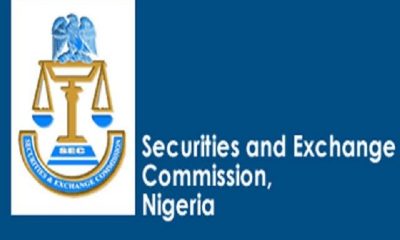

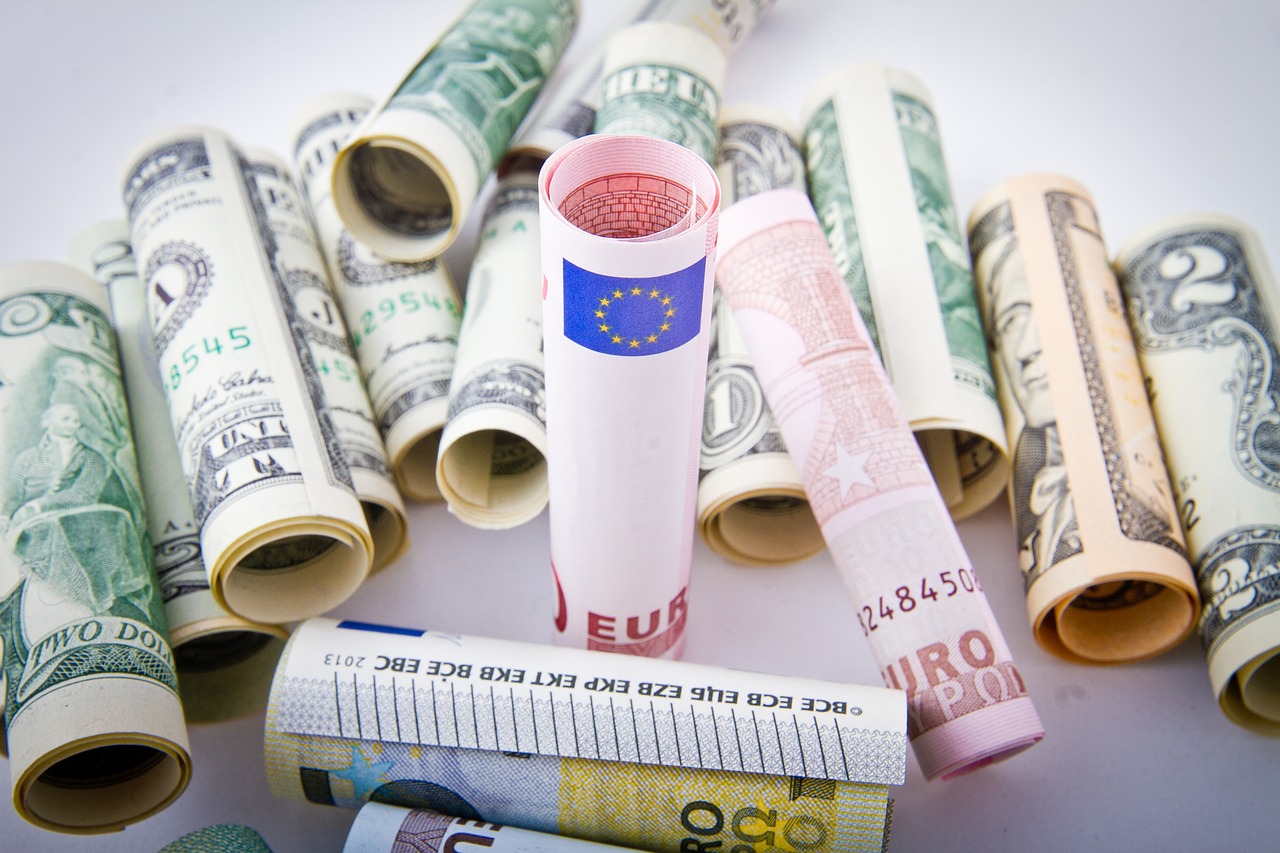


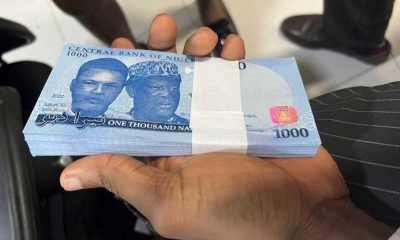

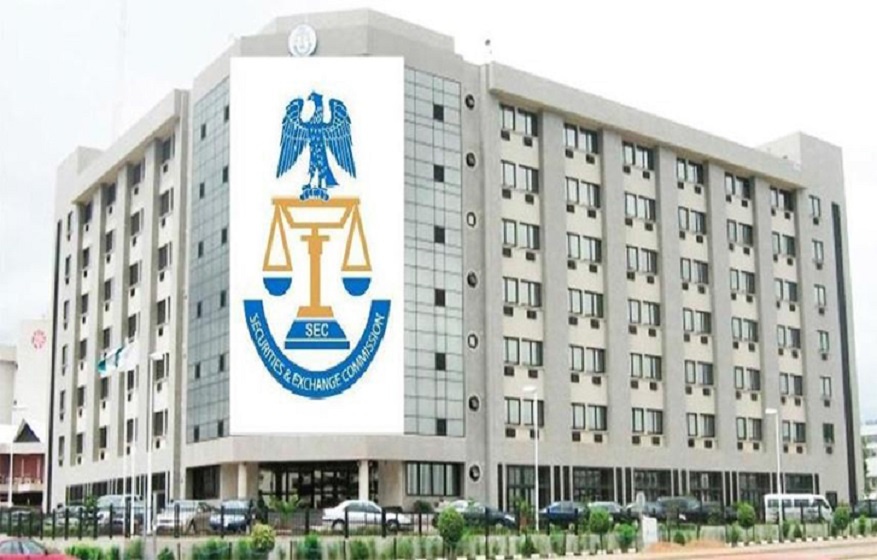
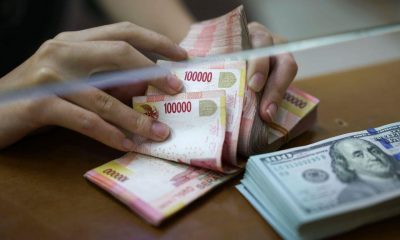












1 Comment